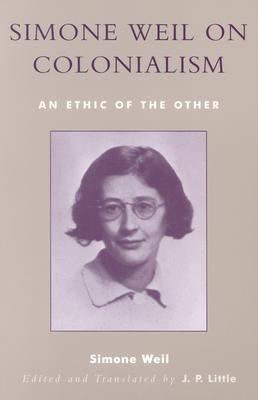
2003
First Published
4.07
Average Rating
256
Number of Pages
In 1931, Simone Weil read an article by Louis Roubaud in the Petit Parisien that exposed the Yen Bay massacre in Indochina. That article opened Weil's eyes, and from then until her death in exile in 1943, she cared most deeply about the French colonial situation. Weil refused to accept the contradiction between the image of France as champion of the rights of man and the reality of France's exploitation and oppression of the peoples in its territories. Weil wrote thirteen articles or letters about the situation, writings originally published in French journals or in French collections of her work. J. P. Little's fluid and clear translations finally introduce to English-speaking scholars and students this important element of Weil's political consciousness.
Avg Rating
4.07
Number of Ratings
30
5 STARS
33%
4 STARS
40%
3 STARS
27%
2 STARS
0%
1 STARS
0%
goodreads
Author

Simone Weil
Author · 51 books
Simone Weil was a French philosopher, Christian mystic, and social activist. Weil was born in Paris to Alsatian agnostic Jewish parents who fled the annexation of Alsace-Lorraine to Germany. Her brilliance, ascetic lifestyle, introversion, and eccentricity limited her ability to mix with others, but not to teach and participate in political movements of her time. She wrote extensively with both insight and breadth about political movements of which she was a part and later about spiritual mysticism. Weil biographer Gabriella Fiori writes that Weil was "a moral genius in the orbit of ethics, a genius of immense revolutionary range".